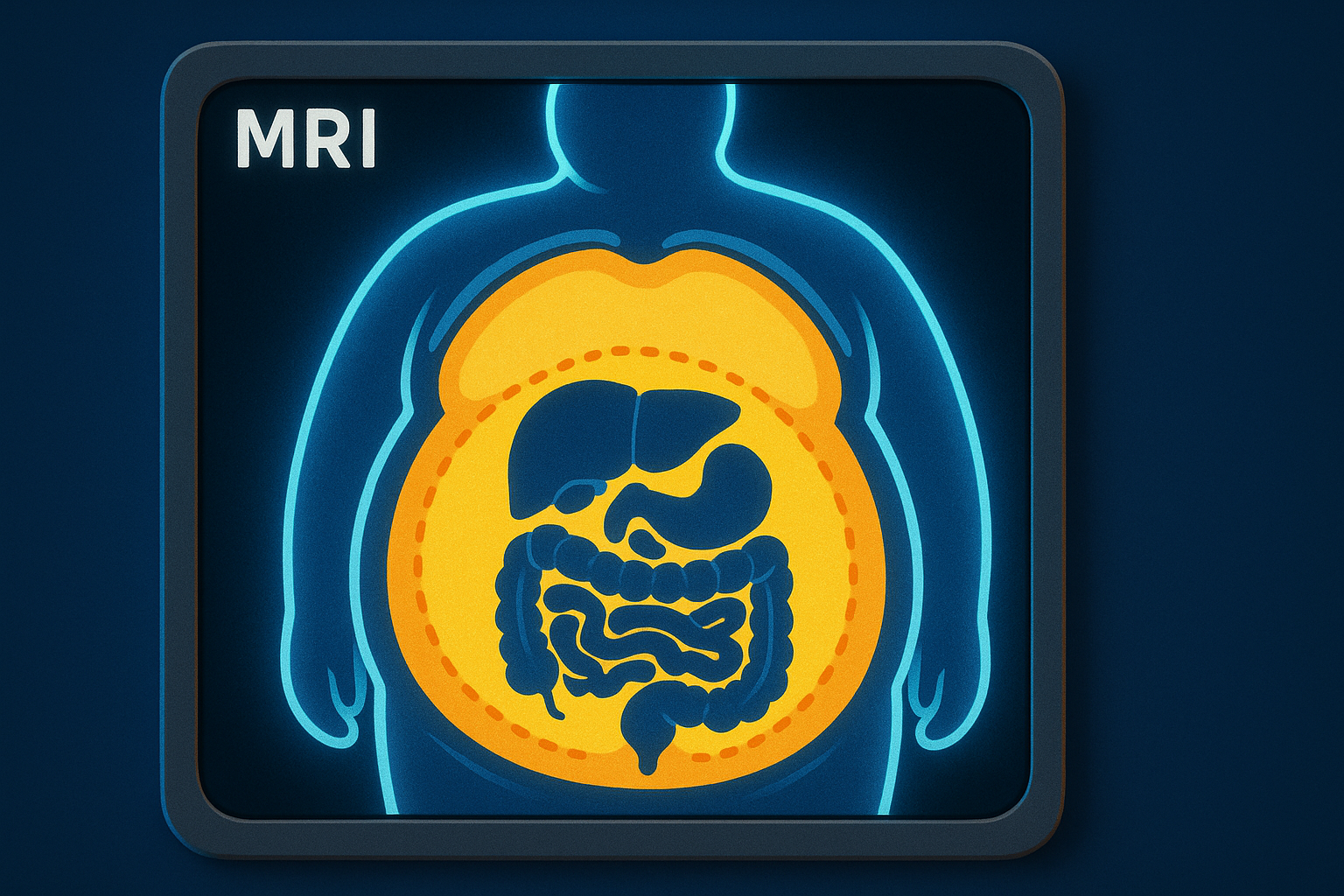
Health Studies Hub
Your go-to source for daily breakdowns of the latest health, fitness, and nutrition research.
Probiotics Cut Weight and Fat in Obese Adults.
In 2024, Belén Torres and a team from Spain reviewed six clinical trials from 2012–2022 involving overweight or obese adults. They studied how probiotics, like Bifidobacterium and Lactobacillus strains, affect body weight, BMI, and fat mass without dieting, using data from PubMed, Scopus, and Cochrane databases.
Meat Lowers Cancer Risk and Outmuscles Soy by 2x.
In a 2025 study from McMaster University, researchers analyzed nearly 16,000 adults from NHANES III to check if animal protein raises death risk from heart disease, cancer, or any cause. They found no link to higher mortality—animal protein even cut cancer death risk by a modest but significant amount. Plant protein showed no strong effects, but inflammatory diets with processed meats worsened outcomes.
Unrecognized Ingredients Signal Body Trouble.
“If you don’t recognize an ingredient, neither does your body.”
~Jen Smiley
In a 2025 podcast interview on the Ultimate Human Podcast, hosted by Gary Brecka, nutrition expert Jen Smiley shared her journey to better health by reading food labels. She explained how grocery items are 98% marketing, with tiny ingredient lists hiding chemicals you can't pronounce, like preservatives that cause inflammation and disrupt your body's natural processes.
Handgrip Strength Signals Malnutrition Risk.
In 2025, Vânia Aparecida Leandro-Merhi and a team from Pontifical Catholic University of Campinas studied 211 hospitalized adults in Brazil’s public health system. They used the Global Leadership Initiative on Malnutrition (GLIM) criteria and handgrip strength (HGS) to spot nutritional risks, comparing them to standard tools like Nutritional Risk Screening-2002, measuring muscle strength and body composition.
Artificial Sweeteners Linked to Higher Prostate Cancer Risk.
In 2025, Kuiyuan Zhang and a team from Guizhou University of Traditional Chinese Medicine analyzed data from public databases to study how artificial sweeteners like aspartame, sucralose, and saccharin relate to prostate cancer. They used computer models and lab tests to find key genes and see how sweeteners interact with cancer cells.
Loneliness Worsens Diet Quality in Older Adults.
In 2025, Elena Freire Paz and a team from the University of Santiago de Compostela studied 25 older adults in Spain (Galicia and Extremadura) using interviews and home observations from November 2024 to April 2025. They explored how loneliness affects eating habits, focusing on food choices, cooking routines, and meal enjoyment.
Poor Sleep Drives Unhealthy Eating Choices.
In 2025, Andrea Bazzani and Ugo Faraguna from Italian universities wrote an editorial reviewing how eating and sleeping are linked. They looked at past studies showing poor sleep changes what we crave, like more sweets and high-calorie foods, due to hormone shifts like less leptin (fullness signal) and more ghrelin (hunger signal). This can lead to overeating and weight gain.
Amino Acids May Feed Cancer Cells, Not Patients.
In 2025, Giovanni Corsetti and a team from the University of Brescia reviewed studies on amino acid (AA) supplements in cancer patients. They looked at how diet and obesity cause up to 50% of tumors, and how 30-90% of patients get malnutrition from the tumor's high energy use, leading to muscle loss and weakness called sarcopenia or cachexia.
Hidden Visceral Fat Speeds Heart Aging Despite Exercise.
In 2025, Vladimir Losev and a team from the MRC Laboratory of Medical Sciences in London analyzed 21,241 UK Biobank adults, using AI to study body fat via whole-body imaging and heart health through scans. They focused on visceral fat (hidden around organs like the stomach) and its link to heart aging, measured by tissue stiffness and inflammation.
Artificial Sweeteners Speed Up Brain Aging by 1.6 Years
In 2025, Claudia Kimie Suemoto and a team from the University of São Paulo in Brazil studied 12,772 middle-aged adults (average age 52) over several years. They tracked intake of seven sweeteners like aspartame and saccharin in ultra-processed foods such as diet sodas and yogurts, using food surveys and cognitive tests for memory and thinking skills.
High-Protein Breakfasts Ease Morning Anxiety.
In 2020, a scoping review by K. Ahern and team found that low protein intake and unstable blood sugar from high-carb diets worsened anxiety by 20-30%, as they disrupt serotonin production and spike stress hormones like cortisol. A 2016 study by K. M. Whitaker showed skipping breakfast raised cortisol levels in women by 15-25%, increasing morning stress and anxiety.
Creatine Plus Exercise Prevents Type 2 Diabetes.
In 2025, Ewelina Młynarska and a team from the Medical University of Lodz reviewed studies on creatine monohydrate supplementation combined with exercise for preventing type 2 diabetes. They focused on how skeletal muscle, which handles most body glucose, loses function in type 2 diabetes due to insulin resistance and sarcopenia (muscle wasting), and how creatine monohydrate—found in meat/fish or supplements—might help alongside workouts like weights or aerobics.
Raw Dairy Boosts Health Unlike Processed Milk.
In 2021, Primally Pure compiled research on raw dairy’s benefits. Unlike conventional dairy, raw milk from grass-fed cows keeps natural enzymes, vitamins, and bacteria. It’s not pasteurized, so it retains 3x more omega-3s, 2-4x more CLA (anti-cancer fat), and higher vitamin A, D, and K levels, which support immunity and skin health.
Beet Juice Lowers Blood Pressure in Older Adults.
In 2025, Anni Vanhatalo and a team from the University of Exeter studied 24 older adults (aged 60-75) in a 2-week trial. Participants drank nitrate-rich beetroot juice (140 mL/day, ~400 mg nitrate) or a placebo juice, and researchers measured blood pressure, oral bacteria, and blood vessel health using standard tests.
Hidden Additives in Food Increase Mortality by 24%.
In 2025, KM Krost and a team studied 186,744 UK adults aged 40–75 from the UK Biobank (2006–2010). They used food surveys to track 37 ultra-processed food additives like flavor enhancers, coloring agents, and sweeteners, linking them to deaths over 11 years. They adjusted for total food intake to focus on additive effects.
Keto Diet Slashes Metabolic Syndrome Health Risks.
In 2025, Jiping Chen and Jiawei Yao from Shandong University and Guangdong Vocational Academy of Art reviewed how the ketogenic diet (KD)—low-carb, high-fat—helps manage metabolic syndrome (MetS), a mix of high blood pressure, high sugar, big waist, high triglycerides (TG), and low good cholesterol (HDL). They looked at how KD boosts ketone bodies like β-hydroxybutyrate (β-BHB) to burn fat, improve insulin use, fix lipid levels, and cut swelling.
Speed Eating Linked to Poor Teen Mental Health.
In 2025, Yuko Fujita and Tomohiro Takeshima from Nagasaki University surveyed 106 adolescents and young adults (aged 12-24) in Japan. They used a lifestyle questionnaire and the General Health Questionnaire (GHQ-12) to check mental health, and a gummy jelly test to measure swallowing threshold (how fast someone eats).
Ultra-Processed Foods Double Fat Gain Without Extra Calories.
In 2025, Jessica M. Preston and Romain Barrès from the University of Copenhagen studied 43 men aged 20-35 in a crossover trial. Participants spent three weeks on ultra-processed diets (like processed meats and snacks) and three on unprocessed diets (whole foods), with equal calories, followed by a washout period. They measured weight, hormones, and pollutants in blood.
Exercise and Yogurt Cut Inflammation in Young Men.
In 2025, Emily C. Fraschetti and a team from York University studied 30 healthy young males in a 12-week trial. They did resistance and plyometric exercises twice weekly, with half consuming Greek yogurt (20g protein) and half an isoenergy carb pudding post-workout. They measured inflammation markers like IL-6, TNF-α, and CRP in blood at start, 6 weeks, and end.
Blueberries Boost Immunity and Cut Allergies in Infants.
In 2025, Carina Venter and a team from the University of Colorado Anschutz Medical Campus studied 84 healthy infants. They randomly gave one group freeze-dried blueberry powder from 5-6 months old, mixed into food, while the control group got no blueberries. They tracked allergies like eczema or food reactions, immune markers in blood, and gut bacteria via stool samples over 6 months.




















